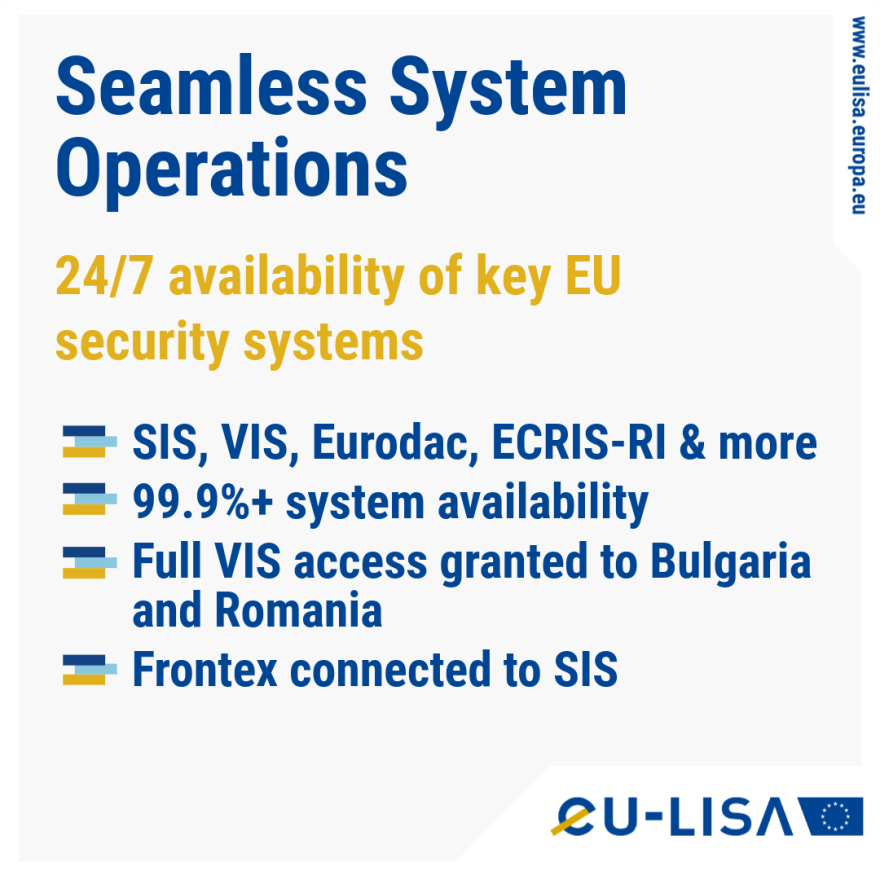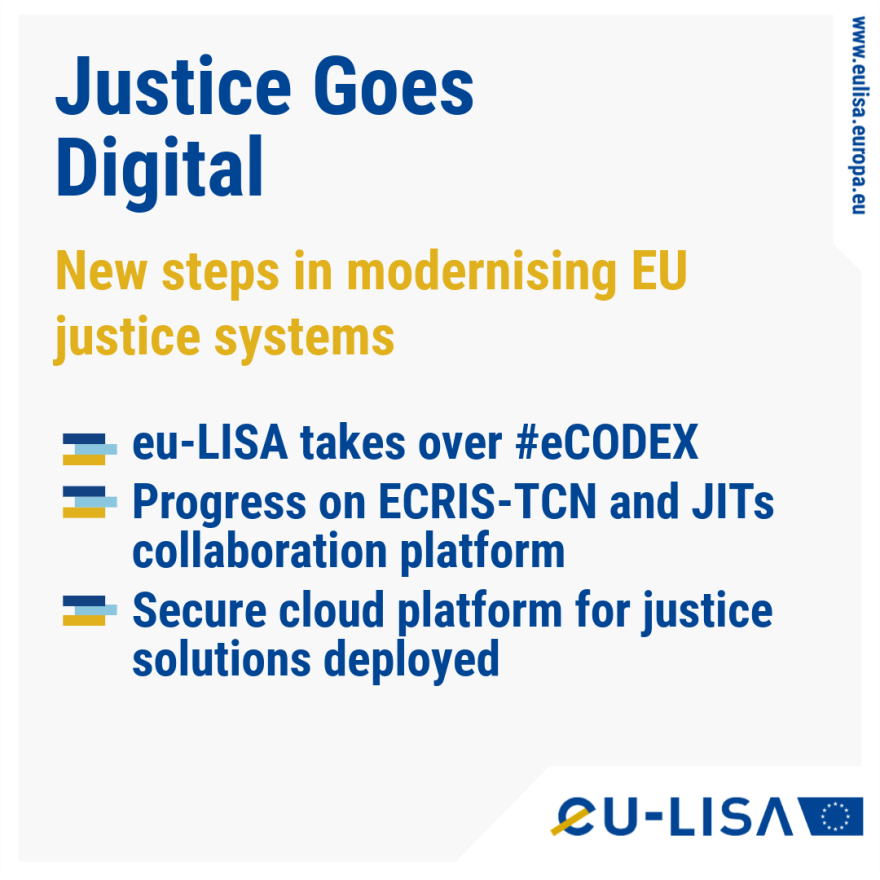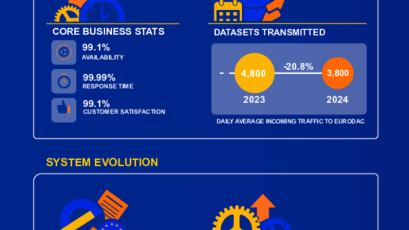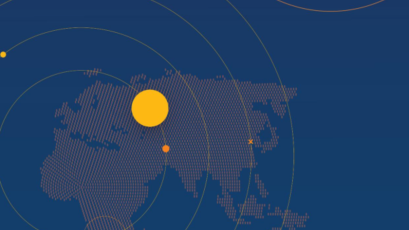Actions
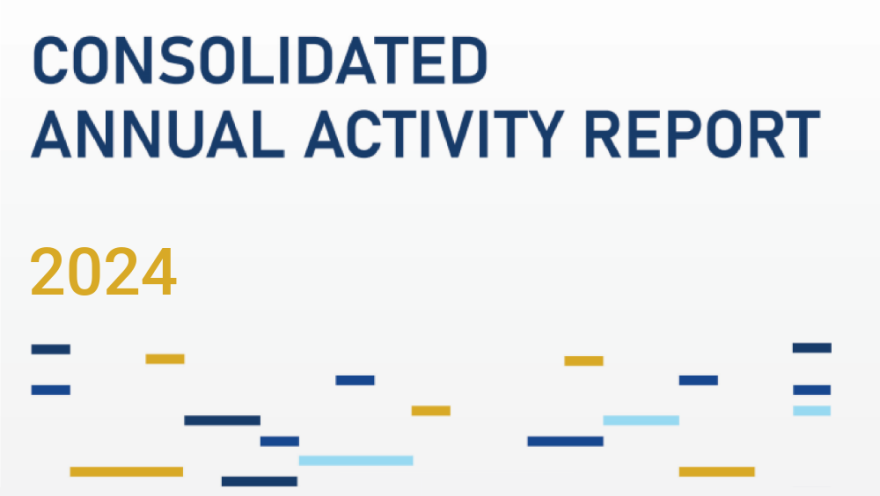
eu-LISA has released its Consolidated Annual Activity Report for 2024, highlighting key achievements and milestones in supporting EU policies through digital solutions.
The report provides a comprehensive overview of the Agency’s work in delivering, maintaining and evolving the large-scale IT systems that are essential for the implementation of EU policies in the areas of border management, migration and asylum, internal security and justice.
Executive Director ad interim, Marili Männik:
"2024 was a pivotal year for eu-LISA. Amid evolving priorities and complex demands, we demonstrated resilience, embraced innovation, and reinforced our role as a trusted digital partner to the EU and its Member States. I am proud of our achievements and confident that our work continues to make Europe safer, more connected and future-ready."
Strengthening the Schengen Architecture
In 2024, eu-LISA continued to ensure the high availability and stable operation of all core systems under its remit, including the Schengen Information System (SIS), the Visa Information System (VIS), Eurodac, and ECRIS-RI. Notably, the Agency facilitated the connection of Frontex to SIS and enabled full access to VIS for Bulgaria and Romania – key steps in reinforcing Schengen-wide cooperation.
Progress was also made in the delivery of new systems and interoperability components. The Entry/Exit System (EES) baseline version was finalised, and successful joint rehearsals with VIS and the shared Biometric Matching Service (sBMS) were conducted. Although EES could not enter into operation in 2024 as initially planned, the Council endorsed a revised schedule for a progressive rollout starting in October 2025.The content for the second column goes here.
Advancing Justice and Digitalisation
As of June 2024, eu-LISA formally took over operational responsibility for e-CODEX, the EU’s secure platform for judicial cooperation in cross-border proceedings, reinforcing trust and interoperability among justice authorities.
In parallel, development continued on several justice-centric digital systems, including ECRIS-TCN and the collaboration platform for Joint Investigation Teams (JITs).
At the same time, eu-LISA deployed a secure cloud platform for justice solutions, enhancing scalability, resilience and data security. Together, these developments form part of a broader effort within the Agency to align its systems with EU policy objectives on security, efficiency and digital sovereignty.
Innovation, Cybersecurity and Sustainability
eu-LISA maintained its focus on responsible innovation, integrating cloud technologies and preparing for the use of artificial intelligence in line with EU regulations. Security and data protection remained a priority, with enhanced risk assessments and the implementation of new internal control measures.
The Agency also made significant progress in reducing its environmental footprint, achieving EMAS certification in April 2025 and continuing infrastructure upgrades at its Strasbourg site.
Organisational Transformation and Strategic Planning
In 2024, eu-LISA launched a major organisational change initiative – RAISE – aimed at improving delivery, agility and staff engagement. A strategic management action plan was introduced to strengthen in-house development capabilities, improve governance, and foster stakeholder relations.
eu-LISA reached a 97% implementation rate for outstanding audit recommendations and recorded 100% execution of its 2024 budget, reflecting strong financial discipline and effective performance monitoring.
As Chair of the Justice and Home Affairs Agencies Network (JHAAN) in 2024, the Agency led efforts to enhance inter-agency cooperation, promote digital transformation and address shared challenges in security and justice.
